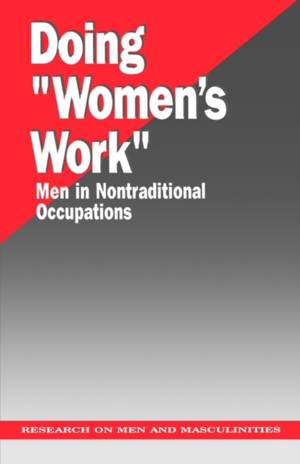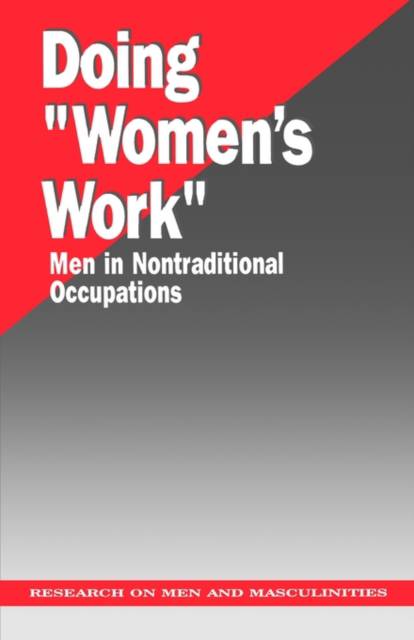
- Afhalen na 1 uur in een winkel met voorraad
- Gratis thuislevering in België vanaf € 30
- Ruim aanbod met 7 miljoen producten
- Afhalen na 1 uur in een winkel met voorraad
- Gratis thuislevering in België vanaf € 30
- Ruim aanbod met 7 miljoen producten
Zoeken
Doing "Women's Work"
Men in Nontraditional Occupations
€ 238,45
+ 476 punten
Omschrijving
Research tells us of the problems women face when they cross over into male-dominated professions: discrimination, harassment, glass ceilings, exclusion from informal networks. We also know much about female-dominated professions, where pay and prestige are lower than corresponding male professions. What happens to men doing "women′s" jobs? Doing "Women′s Work" represents the first effort to summarize our state of knowledge about the effects of men in "women′s professions," on the men and their views of masculinity, on the occupations, and on the women with whom they work. Do men get preferential treatment in these positions? Higher salaries? Are they treated the same as their female coworkers? Through a series of statistical and demographic analyses as well as qualitative case studies of men in such professions as teaching, secretarial work, caregiving, and stripping, the authors offer an insightful glimpse of the roles of these men in bolstering or undermining the gendered assumptions of occupational sex segregation in the workplace. A fascinating yet scholarly study, Doing "Women′s Work" will be invaluable reading for students, researchers, and professionals interested in gender studies, work and occupations, human resources, sociology, management, human services, family studies, psychology, and education. "The studies lead to a more complex and sophisticated view of occupational segregation. . . . The chapters in Christine Williams′ book are logically arranged, and all are of reasonably good quality." --Contemporary Sociology "The focus on pursuing questions is illustrated most capably by this collection of research on occupational segregation. . . .The book is an excellent collection of essays for those interested in work and gender issues, providing both a rich theoretical background and case studies of men in nontraditional occupations." --Masculinities
Specificaties
Betrokkenen
- Uitgeverij:
Inhoud
- Aantal bladzijden:
- 205
- Taal:
- Engels
- Reeks:
- Reeksnummer:
- nr. 3
Eigenschappen
- Productcode (EAN):
- 9780803953055
- Verschijningsdatum:
- 19/08/1993
- Uitvoering:
- Paperback
- Formaat:
- Trade paperback (VS)
- Afmetingen:
- 142 mm x 215 mm
- Gewicht:
- 272 g

Alleen bij Standaard Boekhandel
+ 476 punten op je klantenkaart van Standaard Boekhandel
Beoordelingen
We publiceren alleen reviews die voldoen aan de voorwaarden voor reviews. Bekijk onze voorwaarden voor reviews.







